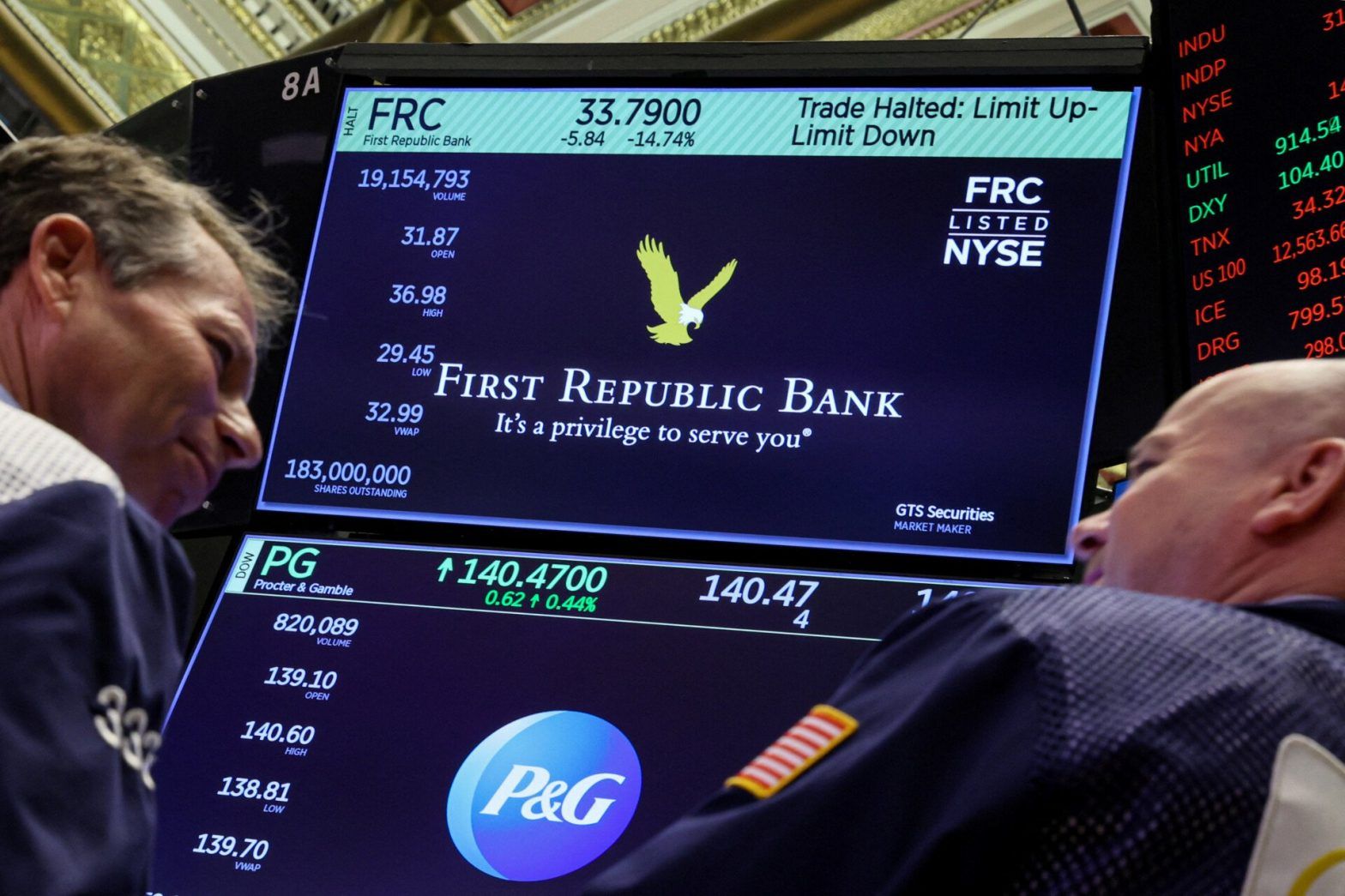
First Republic Bank Gains Hope as Regulators Mull BTFP Expansion Following SVB and Signature Bank Collapses
Emergency Lending Program Could Bolster Struggling Banks and Restore Confidence Amid Turbulent Financial Landscape
Federal banking regulators are reportedly considering an expansion of the Bank Term Funding Program (BTFP), a recently established emergency lending initiative designed to provide financial institutions with increased access to liquidity in times of crisis. The move comes in response to the ongoing struggles of First Republic Bank, as well as the unprecedented collapse of Silicon Valley Bank (SVB) and Signature Bank earlier this month.
Created in response to the failures of SVB and Signature Bank, the BTFP aims to safeguard depositors' funds and help stabilize the banking industry. According to Bloomberg, authorities are examining the possibility of expanding the program to offer additional support to First Republic Bank, which has already received a $70 billion liquidity infusion, including $30 billion in deposits from 11 of the nation's largest banks and loans from the Federal Reserve's lending facilities.
First Republic Bank's stock price plummeted to its lowest level in over a decade, falling from a range of $115 to $120 per share in early March to just $12.36 per share by the end of last week. Additionally, the bank's credit rating was downgraded to junk status by both S&P Global Ratings and Fitch Ratings.
To accommodate the potential expansion, authorities may need to allocate additional funds to the BTFP, which was initially backed by $25 billion from the Treasury Department's Exchange Stabilization Fund. In the short time since its launch on March 12th, the program has already lent out approximately $53.7 billion to banks, a dramatic increase from the $11.9 billion disbursed during its first five days.
The recent banking crisis, triggered by the collapse of SVB and Signature Bank, has significantly impacted regional and mid-sized banks. Both institutions were particularly vulnerable due to their high levels of uninsured deposits, with over 93% of SVB's deposits and 89% of Signature Bank's deposits lacking insurance. In response to the crisis, federal financial regulators granted a systemic risk exception, allowing the Federal Deposit Insurance Corporation (FDIC) to backstop all deposits, including those above the standard $250,000 insurance threshold.
In an effort to stabilize the situation, First Citizens Bank & Trust Co has agreed to purchase SVB's deposits and loans for a total of $72 billion, at a discount of $16.5 billion. The FDIC will retain around $90 billion in securities and other assets for future disposition. Furthermore, the FDIC has received equity appreciation rights in First Citizens BancShares, Inc., with a potential value of up to $500 million.
The FDIC and First Citizens Bank have also entered into a loss-share transaction on the commercial loans acquired from SVB, with the goal of maximizing recoveries and minimizing disruptions for loan customers. The estimated cost of SVB's failure to the Deposit Insurance Fund (DIF) is expected to be around $20 billion, with the exact cost to be determined once the receivership is terminated.
As the industry grapples with the consequences of these major bank failures, the expansion of the BTFP could provide much-needed support to struggling financial institutions and help restore confidence in the banking sector.
Read More
-
GPIQ ETF Price Forecast: Can a 10% Yield at $52 Survive the Next Nasdaq Selloff?
09.02.2026 · TradingNEWS ArchiveStocks
-
XRP ETF Price Forecast: XRPI at $8.32, XRPR at $11.86 as $44.95M Inflows Defy BTC and ETH Outflows
09.02.2026 · TradingNEWS ArchiveCrypto
-
Natural Gas Futures Price Forecast: Will The $3.00 Floor Hold After The $7 Winter Spike?
09.02.2026 · TradingNEWS ArchiveCommodities
-
Stock Market Today: Dow Back Under 50K While S&P 500 and Nasdaq Push Higher as Gold Reclaims $5,000
09.02.2026 · TradingNEWS ArchiveMarkets
-
USD/JPY Price Forecast: Can Bulls Clear 157.5 Without Triggering a 160 Intervention Line?
09.02.2026 · TradingNEWS ArchiveForex



















